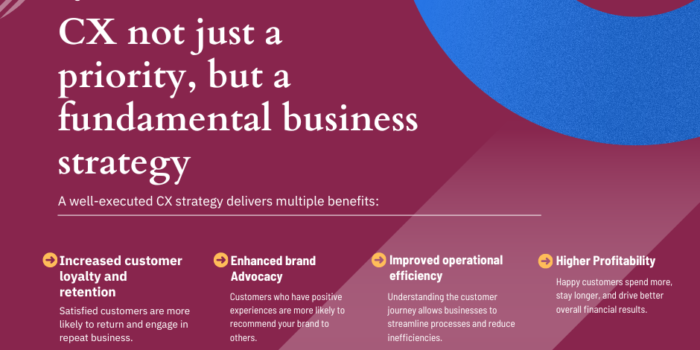Understanding the term:
Metaverse- a term that first came up in Neal Stephenson’s 1992 science fiction novel – Snow Crash – which described life-like avatars meeting in realistic 3-D buildings and other virtual reality environments – is currently the favourite term of marketers. With Facebook’s announcement of its metaverse expedition in October 2021, apps that referenced the term grew 66% month-over-month by November 2021.

Metaverse refers to a broad spectrum of technologies that entails augmented reality (AR), virtual reality (VR), mixed reality (MR), blockchain, along with several other concepts from social media in order to create a virtual world mimicking real-life experiences. Till now, given the buzz the word, metaverse has created, a full-proof binding definition has not yet been come up, which is due to the stage it is right now at and an evolving dynamic it has been going through.
Metaverse refers to a broad spectrum of technologies that entails augmented reality (AR), virtual reality (VR), mixed reality (MR), blockchain, along with several other concepts from social media in order to create a virtual world mimicking real-life experiences. Till now, given the buzz the word, metaverse has created, a full-proof binding definition has not yet been come up, which is due to the stage it is right now at and an evolving dynamic it has been going through.
Metaverse Market Space: Big Players
The timeline of companies and labs delving into the metaverse space dates back to the early 1990s with the birth of virtual reality somewhere between the 1950-1960s. Metaverse has huge connotations with the gaming industry. With time, it has evolved into virtual concerts, cryptocurrencies and now, with more ambitious pursuits to venture into holograms.
Tech giant, Microsoft has come up with its new venture, the Microsoft Mesh platform which is based on holoportation and gives you the experience of any real environment around the world. The company has recently been making a move for massive investment in acquiring game development giant Activision Blizzard in an attempt to create a more interactive gaming experience.
Facebook changing its name to Meta, described as a strategic shift toward metaverse pursuits, has opened up access to VR social platform Horizon Worlds in 2021. It’s a platform that allows multiple players, up to 20 people at a time, to hang out and play in a virtual space. In its future plan, Meta is planning to release Project Cambria, a high-end VR and mixed-reality headset by September of 2022. Apart from this, a web version of Horizon is being planned by the tech giant by the end of 2022.
Decentraland, the first-ever blockchain-powered place in the metaverse which allows buying or selling lands/plots, launched in February 2020 has been successful in making trends in the metaverse market. JP Morgan has recently bought space and named it ‘Onyx Lounge’ in the Metajuku mall, Decentraland making it the first bank to delve into metaverse space. The space is characterized by features like a digital portrait of Jamie Dimon, the CEO of JPMorgan, and a roaming tiger. January 2022, marked a historic milestone wherein Barbados signed an agreement with Decentraland to establish its virtual embassy.
Zepeto is an Asia-born metaverse platform, which allows users to create and interact as 3D avatars in different worlds. It accounted for 22 million users in January 2022. Recently, K-pop girl group Blackpink collaborated with Zepeto for the release of their single “Ice Cream”- the music video which was recreated on metaverse for users to visit. Fashion brands Gucci, Christian Dior, Nike, makeup brand NARS and others have moved their line of products on Zepeto for users to try on virtually.

Innovations shaping the metaverse landscape
Virtual Reality and Augmented reality are the two cornerstones of the metaverse. These technologies are responsible for developing immersive experiences for people to interact with virtual objects, people, and environments. Currently, in their nascent stage, developments in AR and VR are likely to be shaping the metaverse in the days to come. Tech giants like Meta, Microsoft, and Lenovo have been making big investments in developing metaverse-related VR and AR. Lenovo has announced a five-year plan to invest $15bn in VR and cloud computing services.
Artificial intelligence (AI) lies at the heart of creating a metaverse future. It is a vital tool when it comes to creating virtual worlds and avatars in software platforms, and allows interaction in virtual environments. Meta is working on creating AI models that will understand modalities like reading lips while listening for speech recognition, analysing text, images and videos to check for policy breaching posts, etc. Qualcomm has recently announced a $100m fund in a pursuit to support innovations that are integrating AR and AI in metaverse platforms. AI has been crucial for gaming companies and social media firms for content, safety, privacy assistance and much more.
Cloud computing has been readily shaping the metaverse landscape as huge heaps of data are being generated. Thus, innovations in cloud computing will be growing in demand with the advancements made in the coming days. Innovations and ready adaption of Web3 and blockchain technology will be essential to guide the success of any new venture delving into the metaverse space.
What does this mean for business enterprises?
With this immense popularity around metaverse, it has a tangible outcome of entrepreneurial stimulations for a lot of people out there.
The global metaverse market size was estimated at USD 38.85 billion in 2021. It is expected to expand at a compound annual growth rate (CAGR) of 39.4% from 2022 to 2030, with a valuation of USD 678.80 billion by 2030. The Augmented Reality market has made its way into several business sectors and has been estimated at USD 25.33 billion in 2021, followed by a CAGR of 40.9% from 2022 to 2030. By share of application of AR in 2021, the industrial and manufacturing market has marked the highest, thus pointing at the growing transformation of businesses towards metaverse.

In the wake of the Covid-19 crisis which witnessed a dynamic switch into remote work and online marketplace, more and more businesses are embracing the idea of virtual reality.
Businesses can increase customer engagement through immersive experiences through these emerging technologies. Virtual events have been readily garnering acceptance by several business enterprises to reap the benefits of improved audience participation irrespective of geographical location and better prospects of collecting and assessing audience data. Warner Music Group (WMG), owner of popular music properties, including record labels Atlantic, Elektra, Warner Records, and Parlophone, has created a virtual theme park to bring to its audience an immersive concert experience in exchange for NFTs.
Immersive social media experiences that lie within the scope of the metaverse are something that has drawn the attention of business ventures. Popular social commerce platform eBay has recently acquired the NFT marketplace KnownOrigin to provide its customers with unique digital collectables. Sports manufacturer Nike has embraced the concept of AI and delved into the metaverse space and created Nikeland – its purpose-built metaverse space at the Roblox platform. This space offers its users to meet, socialize and take part in promotions thus taking engagement and brand experience to a whole new level.7 million visitors visited Nikeland in November 2021- claim Nike.
For retail store businesses, immersive shopping experiences provided by the concept of the metaverse are seen as immense potential as it allows the customer to try out the products before purchasing. Walmart is getting prepared to start selling virtual electronics, toys, appliances, and home decor through a virtual mall of its own. Zara, the textile giant that has chosen Zepeto as the metaverse to launch its first collection of virtual garments. A study has shown that 70% of consumers who visited a virtual store ended up buying an item.
In order to ace innovative marketing strategies, the metaverse is soon going to be a benchmark for businesses. Big names like Nike, Gucci, Louis Vuitton, Tommy Hilfiger and Forever 21 all have made metaverse-based marketing campaigns.
Takeaway:
Big business ventures delving into the metaverse space under the backdrop of dynamic technological advancements made by tech giants form a strong proposition on how the metaverse could prove to be of immense value for the business. Though now at the nascent stage, slow and steady advancements made and tapping into the positive points of metaverse will prove to be advantageous for businesses. Immersive experiences for customers, a persistent virtual environment, and complete ownership of assets are some of the undisputed advantages that metaverse has to offer to businesses. The metaverse provides the opportunity to engage a larger section of customers who otherwise were unavailable to businesses given geographical or other restrictions. There has been seen a trend of experience economy taking over the known material economy. A recent poll by a leading market research firm shows that 72% of millennials prefer spending their money on experiences rather than material things. However, policies, cyber security, data breach and privacy-related issues, will have to be taken into consideration to make a move into this space.
With a well-ideated and strategized move combined with innovation, businesses can earn themselves greater margins of profit and brand name recognition by embracing the emerging concepts of the metaverse.
References : Wired, The Fashion Law, Verdict, Business Standard, Global News Wire, Sensor Tower






 Market Research
Market Research Consumer Research
Consumer Research Industry Research
Industry Research Market Entry Strategy
Market Entry Strategy Feasibility Studies
Feasibility Studies Product Research
Product Research User Research
User Research Automobile & Mobility
Automobile & Mobility Banking and Finance
Banking and Finance Consumer Products & FMCG
Consumer Products & FMCG Ecommerce & Retail
Ecommerce & Retail Industry & Manufacturing
Industry & Manufacturing Government & Public Sector
Government & Public Sector Industry Associations
Industry Associations Technology & Software
Technology & Software Venture Capital & PE
Venture Capital & PE Consulting & Advisory
Consulting & Advisory India Entry Market Research
India Entry Market Research Innovation Consulting
Innovation Consulting KX Market Radar
KX Market Radar Business Model Development
Business Model Development Gen Z Navigator
Gen Z Navigator